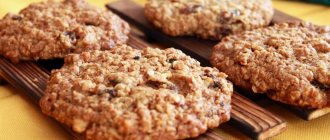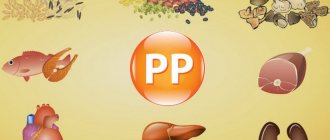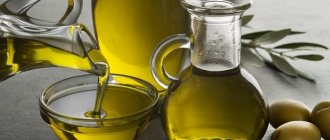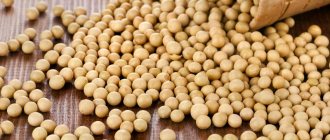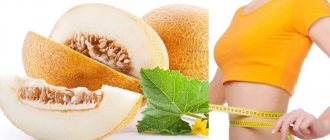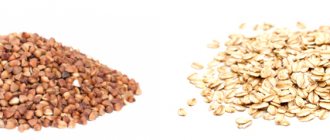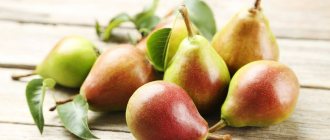A healthy and dietary diet should include foods that combine satiety and low calories. Pistachios satisfy these requirements. Thanks to its rich chemical composition, the product has a number of health benefits. Pistachios benefit both men and women (including pregnant women), as well as children. Regular use of the product allows you to lose excess weight. However, the benefits of taking nuts can only appear if there are no contraindications.
Nutritional and energy value
Nutrient content of 100 grams of pistachios:
| BJU | Content, g |
| Squirrels | 20,61 |
| Fats | 44,44 |
| Carbohydrates | 27,97 |
The nutritional value of a 100 g serving of the product is 2330 kJ, calorie content is 557 kcal.
One serving of pistachios can saturate the body with a third of the daily calories.
Composition, BZHU, calorie content
Since pistachios are often consumed fried and salted, you need to take into account that their calorie content differs from the raw product.
- A 100 g of salted 569 kcal ;
- 100 g of roasted pistachios without salt contains about 572 kilocalories ;
- One shelled raw unsalted nut weighs about 1 gram and contains 5.6 kcal .
The mass of the unshelled nut is approximately 1.5 g and contains 3.7 kcal (or 370 kcal per 100 g).
BZHU 100 g raw kernels:
- proteins - 20.16 g;
- carbohydrates - 27.17 g;
- fiber - 10.6 g;
- sugar - 7.66 g;
- water - 4.37 g;
- saturated fatty acids - 5.907 g;
- polyunsaturated fatty acids - 14.38 g;
- monounsaturated fatty acids - 23.257 g.
About 90% of the fats contained in the product are healthy poly- and monounsaturated fats.
Useful information: Increased insulin levels, the development of obesity and heart pathologies occur due to the consumption of saturated fats. And thanks to unsaturated fats, you can reduce the risk of developing type 2 diabetes, heart and vascular diseases.
The table shows the vitamin and mineral composition of raw pistachios:
| Compound | Unit change | per 100 g | % of daily value |
| BJU, calorie content | |||
| Squirrels | G | 20,16 | 16% |
| Fats | G | 45,32 | 67% |
| Carbohydrates | G | 27,17 | 3% |
| Cellulose | G | 10,6 | — |
| Sugar | G | 7,66 | — |
| Calorie content | kcal | 560 | — |
| Minerals | |||
| Calcium, Ca | mg | 105 | 10% |
| Iron, Fe | mg | 3,92 | 25% |
| Magnesium, Mg | mg | 121 | 30% |
| Phosphorus, P | mg | 490 | 61% |
| Potassium, K | mg | 1025 | 41% |
| Sodium, Na | mg | 1 | 0,07% |
| Zinc, Zn | mg | 2,2 | 18% |
| Copper, Cu | mg | 1,3 | 130% |
| Selenium, Se | mcg | 7 | 12% |
| Manganese, Mn | mcg | 1,2 | 60% |
| Vitamins | |||
| Vitamin C | mg | 5,6 | 6% |
| Thiamine, B1 | mg | 0,87 | 58% |
| Riboflavin, B2 | mg | 0,16 | 8% |
| Niacin, B3 | mg | 1,3 | 6% |
| Pantothenic acid, B5 | mg | 0,52 | 10% |
| Vitamin B6 | mg | 1,7 | 85% |
| Folic acid, B9 | mcg | 51 | 25% |
| Lutein + zeaxanthin | mcg | 2,9 | 50% |
| Fats | |||
| Saturated fatty acids | G | 5,9 | — |
| Monounsaturated fatty acids | G | 23,2 | — |
| Polyunsaturated fatty acids | G | 14,4 | — |
Compound
The product is famous for its high content of B vitamins, especially B6. According to this indicator, pistachios can even compete with beef liver. The chemical elements present in the product include:
- copper;
- manganese;
- potassium;
- phosphorus;
- zinc;
- magnesium;
- vanadium;
- silicon;
- cobalt;
- zirconium;
- tin;
- selenium;
- calcium;
- sodium;
- iodine;
- boron;
- strontium;
- molybdenum;
- nickel;
- titanium;
- sulfur;
- chlorine.
Pistachios are the only nut that contains carotenoids such as zeaxanthin and lutein. These substances strengthen bone tissue and help preserve vision. The product is the absolute leader among nuts in terms of fiber content, which helps cleanse the body of toxins.
Nutritional value and composition of pistachios
Nuts are eaten as part of desserts, as an independent dish, or added to salads, appetizers, and hot dishes, mainly in crushed form.
Nutritional value (BJU) of pistachios:
| Substance | Compound | Units | |
| In a shell | Without shell | ||
| Squirrels | 10 – 11 | 21 | G |
| Fats | 24 – 25 | 52 – 54 | G |
| Carbohydrates (total) | 6 – 8 | 12 – 13 | G |
| Energy value | 270 – 280 | 560 – 620* | Kcal |
*The calorie content of pistachios depends on the variety, storage and preparation method. Raw nuts have minimal energy value. Fried fruits contain more fat, so their calorie content is maximum.
Pistachios contain vitamins and minerals. In terms of calcium content, they are the leaders among nuts. They can also compete with other species in terms of potassium content. But the vitamin composition of the fruit is inferior to walnuts and almonds. You can see the composition of nuts by the amount of minerals and vitamins in the photo below.
Pistachios contain a small amount of “fast” carbohydrates. Therefore, the glycemic index (GI) of nuts is small, only 15 units. This level allows the fruits to be used by people with impaired glucose tolerance and diabetes. When counting calories, you need to take into account the GI. If you reduce the energy value by replacing pistachios with chestnuts, the calorie content will decrease and the GI will increase. Compare the GI level and energy value of nuts and seeds in the photo below.
Beneficial features
The most important properties of the product for human health include the following:
- reducing the risk of developing cardiovascular diseases;
- removing excess cholesterol from the body, increasing the elasticity of blood vessels;
- activation of blood flow;
- improvement of intestinal motility;
- positive effect on the functioning of the nervous and respiratory systems;
- slow heartbeat with tachycardia;
- counteracting chronic fatigue.
For men
The significant zinc content in the product allows you to maintain testosterone levels in the body at the proper level. A deficiency of this substance leads to serious potency disorders.
Arginine in the composition helps to dilate blood vessels, as a result of which sexual desire increases and sexual intercourse prolongs. Folic acid is involved in the formation of sperm, increasing their quantity and quality.
To double your sexual function in a month, it is recommended to eat 100 g of pistachios daily.
Regular consumption of nuts helps maintain optimal cholesterol levels in the body. Thanks to this, blood vessels remain healthy longer. Monosaturated fats found in pistachios reduce the risk of heart attack.
For women
The product has antioxidant properties due to the content of tocopherol and other natural antioxidants in the composition. Pistachios have a rejuvenating and softening effect on the skin.
Regular consumption of pistachios promotes cell growth, development and renewal. As a result, the body rejuvenates and the aging process slows down significantly. This effect is achieved due to the action of phenolic compounds present in significant quantities in the product.
Pistachio-based oil is able to penetrate deep into the skin and remain there for a long time, retaining moisture. Thus, the product allows you to get rid of dryness, hair and flaking on the skin.
During pregnancy
Pistachios contain a significant amount of protein and calcium, which are responsible for the formation of the baby’s skeleton and strengthening bone tissue. Regular use of the product will allow the expectant mother to free the liver from toxins and wastes and remove sand from the kidneys.
Trace elements of pistachios, together with unsaturated fatty acids, participate in the formation of the central nervous system in the fetus and strengthen the heart muscle in the pregnant woman. Amino acids help cleanse the blood, making it easier for a woman to cope with physical activity.
The fruits of the pistachio tree should be introduced into the menu gradually, starting with minimal dosages and observing the body’s reaction, in order to avoid an allergic reaction. The product should be consumed only in its natural form, without salt, because... salty foods provoke swelling.
Immediately after childbirth, pistachios are completely excluded from the diet of a nursing mother. You can return them to the menu once your baby reaches seven months of age. But they do this with caution, giving the woman no more than one nut per day and observing the child’s reaction to the product.
For children
The benefits of the product for children are as follows:
- strengthening the immune system;
- counteracting dysbacteriosis;
- removal of helminths and other parasites from the body;
- normalization of the child’s psychological state;
- strengthening memory, improving the absorption of information.
Pistachios should be introduced into a child’s diet from the age of three. If the baby has a tendency to have food allergies, it is recommended to wait until he is 6-7 years old.
Pistachios are a powerful allergen that can provoke a number of negative reactions in children, including anaphylactic shock.
Vitamin-mineral complex
Compared to other nuts, the calorie content of pistachios is one of the lowest. But they contain the largest amount of amino acids, polyunsaturated fats, vitamins and minerals.
Vitamins
The nutritional value of the product is determined by what vitamins pistachios contain. The most diverse and rich list is represented by group B nutrients, namely:
- B1 (thiamine) - participates in the body’s most important metabolic processes (fat, protein and water-salt). Normalizes the functioning of the cardiovascular, nervous and digestive systems. Stimulates brain activity. Affects blood circulation.
- B2 (riboflavin) - strengthens mucous membranes, builds resistance to infections. Promotes better absorption of nutrients, helps obtain energy from fats and carbohydrates.
- B3 (nicotinic acid, PP) - reduces the level of “bad” cholesterol, increases joint mobility, moisturizes and protects the skin from premature aging. Participates in the breakdown of food, activates cellular respiration, restores hormonal levels.
- B4 (choline) - protects cells from damage, improves memory and concentration, normalizes the functioning of the heart, gall bladder and pancreas.
- B5 (pantothenic acid) - promotes the proper flow of oxidative processes, the formation of hemoglobin, a number of hormones and fats. Helps in the absorption of other vitamins, reduces cholesterol levels.
- B6 (pyridoxine) - normalizes the activity of the immune and nervous systems, prevents the development of anemia, improves digestion processes. Increases potency and male strength.
- B7 (biotin) - participates in the synthesis of fatty acids, optimizes the functioning of the nervous system.
- B9 (folic acid) - cleanses the liver, is useful for the intrauterine development of the fetus.
Portion 90 g. pistachios contain the daily value of B1 and B3, as well as 25% of the daily value of B7, B6 and B5.
Pistachios also contain vitamin E (tocopherol), which, being an antioxidant, preserves youthful skin and muscle fibers. Supports proper heart function, normalizes blood pressure, blood clotting, reduces sugar levels and the risk of developing diabetes.
Minerals
The beneficial properties of pistachio nuts are due to the following mineral complex:
- Calcium - affects blood clotting and the permeability of cell membranes, blocks the absorption of saturated fats in the gastrointestinal tract.
- Chlorine - ensures normal water-salt metabolism, eliminates swelling, participates in the formation of hydrochloric acid, supports liver function.
- Potassium - regulates fluid balance, delays salt deposition, participates in protein synthesis, metabolism of carbohydrates and proteins, improves intestinal motility.
- Sulfur - participates in metabolic and regeneration processes, improves blood clotting, maintains oxygen balance and blood sugar levels.
- Sodium - activates enzymes of the salivary and pancreas, participates in the production of gastric juice, normalizes the activity of the nervous and muscular systems, and has a vasodilating property.
- Magnesium - coordinates heart rate, reduces high blood pressure, regulates blood sugar, strengthens tooth enamel, prevents salt deposits in the kidneys and gall bladder.
- Phosphorus - ensures normal growth of dental and bone tissue, maintains acid-base balance in the body.
- Aluminum - restores damaged cells, supports the functioning of the thyroid gland, forms the tissues of the musculoskeletal system and skin.
- Zinc - improves reproductive function, activates various cellular processes, improves mood.
- Manganese - affects the formation and growth of bone tissue, strengthens the immune system, stabilizes the digestive process, and normalizes the functioning of the nervous system.
- Iron - participates in the processes of hematopoiesis, redox reactions, forms and supports the functioning of the immune system.
Reference!
Due to the optimal ratio of energy and nutritional value, pistachios can be included in a therapeutic diet.
Eating pistachios for weight loss
The main beneficial property of pistachios for weight loss is the presence of complex carbohydrates in them, which help replenish energy during a strict diet. These components are broken down very slowly in the body, which allows you to maintain a feeling of fullness throughout the day.
The optimal daily intake of the product is considered to be 10-15 pistachios. This amount allows the body to receive the necessary level of elements and vitamins without exceeding the daily allowable dose of calories.
School-age children are not recommended to eat more than 5-6 nuts per day.
Consumption standards
Everything has a reasonable consumption limit. The same applies to pistachios. If you abuse them, you may experience:
- allergies. Manifested by the appearance of a rash, itching, or even the onset of anaphylactic shock;
- overweight. Although this nut is positioned as an excellent addition to the diet of a person who is in a calorie deficit, its uncontrolled consumption can cause extra pounds or lack of weight loss results;
- poisoning If the storage conditions of this nut are violated, mold fungi will form on it. Their appearance is accompanied by the production of a dangerous and toxic substance – aflatoxin. It leads to severe poisoning and promotes the development of tumors;
- high blood pressure. The reason for this effect is not the nuts themselves, but sodium, which salt is rich in. And it so happened that it was salted pistachios that gained great popularity;
- problems with the gastrointestinal tract. This is another consequence of excess nut consumption. Overeating can lead to bloating, pain and bowel dysfunction.
Daily intake of pistachios for adults
When answering the question of how many pistachios you can eat per day, you should take into account not only the nutritional value of the product, but also all the potential negative properties. Although this product is classified as dietary, control over its consumption is necessary.
Most experts agree on the norm of pistachios at 30 grams (this is about 10-15 nut kernels). This amount will allow you not to worry about exceeding the caloric intake of the diet, nutrients or essential oils, which can cause nausea and dizziness.
Nuts are popular as a snack for alcoholic drinks; they are eaten with strawberries or cheese. However, it is best to consume pistachios in their pure form, without salt and in moderation.
Daily intake of pistachios for children
Are they allowed and, if so, how many pistachios can a child eat per day? This question is not so simple.
There is no need to give pistachios until the age of two. From two to three years old, you should be especially careful, and after overcoming this age, you can gradually introduce the product into the baby’s diet. His enzymatic system will already be ready to digest such food.
Start giving a quarter to half a pistachio kernel. And for middle-aged children, this amount can reach 15 grams per day.
Recipes for children
In order to introduce pistachios into your child’s diet, you can use this nut in culinary dishes. It can be:
- oriental sweets (Turkish delight, baklava, sherbet, urbeche);
- ice cream with pistachio. Grind the kernels and sprinkle the sweetness with them;
- salads with herbs and cheese;
- rice with ginger and soy sauce;
- stew;
- soups;
- cutlets and meatballs;
Contraindications
Harm from eating pistachios is most often caused by exceeding the daily dosage of the product. This can cause dizziness and nausea, difficulty breathing and rapid heartbeat, and in the long term, cause excess weight. The product is also harmful to patients suffering from high blood pressure and kidney disease.
If you have problems with your teeth, it is recommended to open pistachios only with your hands and a hammer. In a similar way, the shell is broken in the presence of dentures.
Harmful properties
There are a number of cases in which pistachios can harm the body. So, they should not be consumed by people allergic to this nut. Another contraindication due to the high protein content is the presence of severe kidney disease. Abuse of pistachios, seasoned with salt and other spices, leads to severe edema in patients with kidney pathologies.
Also, you should not eat kernels during diarrhea, as they have a laxative effect. If you eat this high-calorie nut in large quantities every day, you can very quickly gain extra pounds.
However, proper consumption of pistachios can help you lose weight. That is why they are included in the diet of many weight loss diets.
What do you need to know when choosing and storing pistachios?
You can buy pistachios in a regular supermarket, grocery market or online store. Nuts in sealed bags must be correctly labeled: expiration date, production address and country of origin of the product.
Weighted pistachios should be carefully inspected before purchasing: most shells should be open, without damage or stains. High-quality nuts have a fresh smell and a sweetish taste. Pay extra attention to packaging and storage location. Fruits in stores should not be located in damp or dusty areas.
The price of pistachios depends not only on the quality of the product and the reputation of the manufacturer, but also on the chosen variety.
Storage rules:
- Nuts must be packed in airtight containers.
- Choose a dry, dark place with low humidity.
- Nuts in the shell are stored best and longest.
- Use special packaging from the manufacturer.
- Storage period – up to 6 months.
Attention! Crushed and ground pistachios are best used immediately, as their shelf life is reduced compared to whole nuts.
Storage methods and periods
Nuts in their shells retain their beneficial properties for up to 9 months in the refrigerator and 1 year in the freezer. The shell of pistachios has protective properties. At room temperature, the oil contained quickly becomes rancid and the product is unusable.
The shelf life of peeled fruits is reduced. Pistachios must be kept closed in a glass jar or vacuum packaging. The product is stored in the refrigerator for only 3 months, and in the freezer for six months. They will last no more than 3 weeks in a plastic bag. It is not recommended to store salted pistachios.
Pistachios are a delicacy and a dietary product. It benefits men and women when consumed in its natural form without salt or sugar.
Harm of pistachios and possible contraindications
Pistachios are rich in vitamins and minerals. But even when using them, there are adverse reactions. Possible harm from eating pistachios:
- individual intolerance;
- weight gain due to overeating;
- indigestion (due to overeating).
The greatest harm can be caused not by the pistachio nuts themselves, but by their improper use. For example, they are eaten in shortbread or cakes. In this case, the calorie content of pistachios increases many times over. On the Internet you can find various recipes for dishes with pistachios, in which they are mixed with an oil base. It is best not to include them in your diet when eating healthy. Preference should be given to raw nuts mixed with fruit.
To increase the shelf life of nuts, they are soaked in a salty solution and then dried. The result is fruits with a high NaCl content. Eating them leads to water retention in the body, edema, increased kidney function and weight gain. With uncontrolled use of such nuts, metabolic disorders occur. If only salted fruits are available for food, then they need to be soaked before eating. After this, rinse with water and dry.
Contraindications to the use of pistachios:
- individual intolerance;
- obesity (in this case they need to be combined with low-calorie foods and reduce daily consumption);
- kidney disease (for salted nuts);
- increased blood pressure (for salted pistachios).
Important properties
Damage to cellular DNA is a leading cause of cancer, inflammation and heart disease. By providing the human body with a set of plant antioxidants, pistachios seriously increase its defenses. The small green nucleoli contain molecules that destroy free radicals and protect cells.
The fruits of the subtropical shrub, which gave the world delicious green nuts, include at least 3 substances with high antioxidant capacity:
- vitamin A (beta-carotene);
- vitamin E (lutein);
- gamma tocopherol.
The last one listed is especially beneficial for hair and vision.
Application for weight loss
High-calorie nuts are far from the most popular product among those who are on a diet. Although pistachios still have some qualities that allow us to talk about their benefits in the difficult process of losing weight. A surprisingly harmonious combination of proteins, vegetable fats and dietary fiber gives a quick feeling of fullness. The need to break each shell prolongs the meal, allowing the brain to register the moment of satiety.
Pistachios are lower in calories and fat than other nuts, making them an ideal snack. Scientists are confident that even if you replace 20% of your diet (in terms of calories) with these green nuts, there will be no increase in body weight. The best time for pistachios is just before meals. This will help dull the feeling of hunger and reduce the portion consisting of other high-calorie foods.
For the benefit of hearts
The beneficial properties of pistachios for cardiological purposes depend on the concentration of fatty acids in the nucleoli, which prevent and treat many cardiovascular diseases.
After just 3 weeks of eating these nuts daily, volunteers in a double-blind study had a 12% decrease in cholesterol levels, a 14% decrease in “bad” cholesterol, and a 14% increase in “good” cholesterol. Since cholesterol is one of the key risk factors for heart disease, the results of the study are very good.
Scientists believe that, in addition to unsaturated fats, nut fiber in pistachios is responsible for lowering cholesterol. The product has a noticeable effect when its share in the diet is 15-20% of calories. For more information, see the April 2007 Journal of the American College of Nutrition.
Potassium is another heart-healthy component of pistachios. The American Journal of Clinical Nutrition makes the case for consuming 10-20% pistachios per day based on sustained reductions in blood pressure and improved core lipid profiles.
More recently, scientists have found another common cause of heart disease. This time the provocateurs were inflammation of the blood vessels. Their intensity and quantity are a very important cardiac marker. The good thing is that pistachios are rich in antioxidants that reduce inflammation even when consumed in moderation (especially lutein).
For excellent vision
The carotenoids lutein and zeaxanthin are important for excellent visual health. One serving of healthy pistachios contains 342 mcg of lutein and zeaxanthin. This is much more than in other nuts. Don't forget about 2% of the daily value of beta-carotene. Our body converts it into vitamin A to use to maintain excellent vision.
In the fight against aging
Pistachios contain a fat-soluble antioxidant that protects body cells from lipid peroxides. These are harmful chemicals formed when oxygen reacts with fats in the absence of antioxidants.
Our wonderful nuts are distinguished by the presence of fat-soluble molecules with antioxidant activity that neutralize the effects of peroxides. But to slow down aging, it is necessary that at least 1/5 of the calorie intake be fresh pistachios. Are you capable of such a feat?
Pistachios for those who want to lose weight
The myth that nuts, including pistachios, prevent you from losing weight has long been dispelled by scientists. Of course, all this is provided that the person tracks how many calories he consumes and does not exceed the established limit.
The experiments not only confirmed the beneficial properties of this nut, but also recorded a reduction in total energy consumption by 41%. Quick satiation, coupled with the fact that pistachios have a fairly low calorie content, leads to an increase in calorie deficit. This is a favorable fact for people losing weight.
The daily diet, supplemented with pistachio, will become more enriched in macro and micronutrients.
The benefits and harms of pistachios
Pistachios remain greatly underestimated in terms of all their benefits; most often they are perceived as a snack for beer or a light snack, but in fact they can replace most food products from our diet.
Thus, pistachios are highly recommended for those who have given up meat, as they are considered an excellent substitute for animal protein and essential proteins, which are so necessary for athletes and ordinary people who carefully monitor their health. Also, oddly enough, these small fruits are extremely recommended for those who want to lose weight (only pistachios cannot be salted); they can replace many products from our diet, thanks to this, those who are losing weight will lose several kilograms and at the same time provide themselves with all the necessary substances.
Pistachios are also good for women who want to get rid of problems with skin, nails and hair. Thanks to the high content of B vitamins, vitamin H and PP, they will help eliminate hair loss, brittle nails and permanently relieve dull complexion and puffiness under the eyes.
The fruits are also good for those who have recently been ill or have undergone long-term rehabilitation in the hospital; they help to recover even faster and be healthy. After just a few days of eating these small fruits, every person will feel cheerfulness and energy.
The fruits are recommended for older people; they help protect them from various complex diseases, even Alzheimer’s disease, as well as arthritis, cataracts and other diseases that are so typical for people of post-retirement age.
But there are people for whom eating pistachios is practically contraindicated for various reasons. Here are the categories of these people:
Allergy sufferers
The fruits of this plant are a highly allergic product that can cause an allergy attack, so people with this problem need to be careful when using the product
People with high blood pressure
Here it must be said that this applies exclusively to salted pistachios; it is precisely because of the high salt content that they become less healthy and can increase blood pressure in some people.
Overweight people
This applies exclusively to excessive consumption of the product; after all, it is quite high in calories and in large quantities can provoke the appearance of excess weight. Also, too much product can cause nausea and even dizziness.

